











Read More
The Zoology program equips graduates for careers in industry, agriculture, and research. They develop professional, communication, and ethical skills, blending innovation and entrepreneurship for personal and national growth, while remaining responsive to societal needs and committed to lifelong learning. Graduates will identify and analyze biotechnological problems, apply multidisciplinary concepts, and achieve global competency. They gain scientific knowledge, laboratory and analytical skills, and problem-solving abilities in various fields. Proficiency in scientific tools, enhanced communication skills, adherence to professional ethics, and a research-oriented mindset are emphasized. Social and environmental responsibility, promoting sustainability, and contributing to societal development are key outcomes.
Year wise Course Details
Courses for this semester
1. To impart the knowledge of taxonomy and schools of biological classification. 2. To provide the knowledge of application of zoology in insect pest management. 3. To provide skill on insect- based industries for the benefit of mankind.
1. To introduce learner to the science of heredity, from its basic principles to the most recent advances in the field. 2. To impart knowledge on genetic alterations in human genome, classical and molecular genetics. 3. To impart knowledge on classical and molecular genetics.
• To understand the fundamentals of structure, composition and function of biomolecules. To develop knowledge and identify the chemical logic of bioenergetics and metabolic pathways. • To impart knowledge of principles and applications of analytical instruments in life sciences. • To analyze biological samples for purification and characterization of Proteins and Nucleic Acids
1. Help to understand the role of statistics in data analysis, decision-making, and scientific research 2. Introduce students to descriptive statistics, including measures of central tendency (mean, median, mode) and measures of dispersion (range, variance, standard deviation). 3. Teach students how to summarize and present data effectively using tables, charts, and graphs
Co-curricular activities will equip the students to enhance and engage with various sections of the society and formulate agendas of social and cultural events, seminars, workshops, awareness programs etc. It will also allow them to participate in community matters.
Courses for this semester
This course will help the students understand about the endocrine system, hormone action, and the receptors involved. The course also focuses on the role of immune cells, immunological responses, passive and active immunities, various immunogens, immunoglobulins, their role in keeping the body healthy and free of infections, production of vaccines based on the knowledge of immunogens, and adjuvants.
Cell biology involves the study of structure and functions of the cell. Cell is basic functional unit of life and is indispensable part of tissue and organization of structure of any organism. The communication between cells is central to the functioning of any living organism.
The course of genomics and molecular biology includes understanding of DNA, RNA and protein molecule’s structure and variations. The course pays attention in understanding the minute events associated with central dogma of life starting from DNA being replicated to transcribed and ultimately translated. The Post transcriptional and post translational events are discussed in depth. The course also touches upon about mutation, mutagens and repair mechanisms.
Courses for this semester
Physiology is the study of the mechanics of the animal and human bodies studied at the molecular, cellular, tissue and organ levels. It will teach students to understand the physics and biochemistry of each organ system and how each of these systems contributes to the functioning of the body as a whole. The goal is to explain the fundamental mechanisms that operate in a living organism and how they interact.
The study of developmental biology includes basic knowledge of reproductive mechanisms of plants and animals. The study helps to understand gametogenesis, embryology, fertilization, post fertilization events, organogenesis, and production of adult organism. This subject provides the fundamental knowledge for animal biotechnology and stem cell research.
This course deals with different types of aquatic ecosystems and different types of aquaculture methods. It includes site selection criteria’s for aquaculture and prestocking and post stocking management processes.
The course will cover the knowledge regarding importance of biological diversity of the world. It provides an overview of Wildlife Protection Act, 1972. The course will also explain different adaptive capabilities of animal diversity.
The course will cover general concerns in research ethics as well as research ethics issues that may be specific to the candidate's own research. The general topics covered in the form of lectures are: Academic integrity including plagiarism, self-plagiarism. Research data and result bias, manipulation, and fabrication.
The key aim is to seed the skills of the student to evaluate recent progress in a specific field, put research findings published in the preceding 1-2 years into a socio–research context, and explain future directions for research as appropriate. Also to build the ability of the Post Graduate Students to summarize the recent insights/advances in the specific research areas within the scope of Zoology.
This paper deals with Identification of ornamental fishes and aquarium plants. It contains aquarium designing, setting up and maintenance of fresh water aquaria along with rearing of indigenous ornamental fish in aquaria. In covers estimation of physico chemical characteristcs of aquarium water, biological filter and culture of planktons.
MOOCS is provided through the Coursera Platform, which is an online course where students are allowed to take courses/ courses per semester based on the hours with relevance to the credit. The courses are provided by international universities across the world. During the courses, students have to submit assignments and quizzes.
MOOCS is provided through the Coursera Platform, which is an online course where students are allowed to take courses/ courses per semester based on the hours with relevance to the credit. The courses are provided by international universities across the world. During the courses, students have to submit assignments and quizzes.
MOOCS is provided through the Coursera Platform, which is an online course where students are allowed to take courses/ courses per semester based on the hours with relevance to the credit. The courses are provided by international universities across the world. During the courses, students have to submit assignments and quizzes.
Courses for this semester
Research Problems in Entomology is a project-based faculty supervised research course. This course aims to give students hands-on laboratory or field experience that can be translated into career fields in entomology.
The course will cover the knowledge regarding morphological and anatomical peculiarities found in different insect groups. It provides an overview of the defense mechanism of insects. It also emphasizes on different methods of insect pest management and vector borne diseases caused by insects.
The course will cover the knowledge regarding different physiological processes operating in insect body. It provides an overview of the effects of neural system on other system of the insect body. It also emphasizes on pesticides and their mode of action in controlling insects.
This paper deals with basic knowledge of fisheries, general characteristics of fishes, feeding habit and digestion of fish, fish diseases and fisheries management.
This paper deals with Sensory organs and migration of fishes, reproductive biology of fishes, endocrine system in fishes, modification in fishes, fish genetics and bioinformatics.

CST- Common scholarship test is a national and international level online MCQ based examination funded for intellectual empowerment by Assam down town University.
CST- Maximum enrolment each year is 269 seats and any 10+2 students can apply. Adtu is northeast India’s first placement driven university to provide 100% scholarship benefits worth 30 cr.
CST aims to inspire brilliant and competent students to pursue further education. Accredited with a prestigious grade by NAAC, UGC and AICTE.
Explore more scholarships that can help you reach out your goal with financial aid.
This scholarship is valid on the basis of the board/university examination
| 95% & above | 100% Scholarship on all semester |
| 90%-94.9% | 50% Scholarship on all semester |
| 80%-89.9% | 25% Scholarship on all semester |
This scholarship is valid on the basis of the board/university exam
| National & International Level | 100% Scholarship on all semester |
| State Level | 50% Scholarship on all semester |
| District Level | 25% Scholarship on all semester |
This scholarship is valid on the basis of the board/university exam
| National & International Level | 100% Scholarship on all semester |
| State Level | 50% Scholarship on all semester |
| District Level & NCC Certificate Holder | 25% Scholarship on all semester |
Discover a multitude of world-class amenities and cutting-edge resources at Assam down town University, enhancing your academic journey to new heights.
The Start-Up & Incubation Centre at Assam down town University provides a supportive environment for young entrepreneurs to develop and grow their business ideas. The center provides mentorship, funding, and networking opportunities to help innovative ideas become successful businesses.
SFURTI scheme to support rural entrepreneurs and innovators, an initiative by the Ministry of MSME
TIDE 2.0 scheme for ICT-based startups which provides a grant of Rs. 4L and Rs. 7L under EiR and Grant categories respectively, an initiative by the Ministry of MeitY.
dtVL Ideation, an incubation program for early-stage entrepreneurs with a market-ready solution/product, offering interest-free loans up to Rs. 2 lakhs.
Sprout UP, an incubation program for students, faculties, and researchers with innovative business ideas, prototypes, or technology solutions.




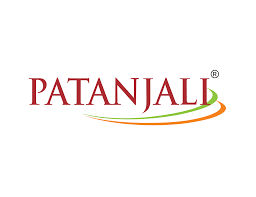


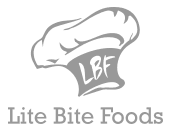



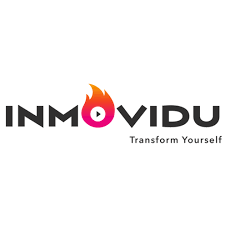




















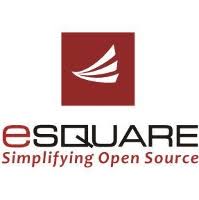


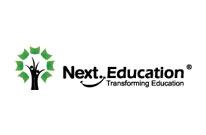





.jpg)



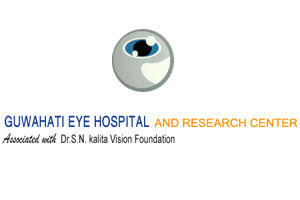




"I am a BBA student of 3rd semester. I hail from Bhutan. I vow that I am having a great experience i...
"AdtU is amazing. I am a BBA student of 2019-22 batch and I am just grateful for the amount of oppor...
Let us be grateful to the people and place who makes us happy. They are the charming gardeners whom ...
Currently I am pursuing MBA in Assam Down Town University. MBA is the professional course through wh...
AdtU is a university that focuses on giving knowledge, education and simultaneously making the stude...
The Assam downtown University has been a great learning experience. The university has provided me w...
My experience with AdtU has been splendid one indeed. Little needs to said about its scenic infrastr...
As a student I am very glad that I have got an opportunity to study here in Assam downtown universi...
My name is Sakhyajit Roy. I?m from Tripura. I joined the university on Auguest, 2017 as a student of...
I share immense pleasure to share my post graduate program experience in Assam down town University....
AdtU is a platform where I got golden opportunities to feed my zeal for knowledge through the dynami...
I am fortunate to get an opportunity to study here in Assam Downtown University. The best thing abou...
Our university is one of the best place for developing ourselves in the field of research and acedem...
ADTU is a university that is very good interms of infrastructure, academics and placements. Our tea...
It is one of best private colleges in North East India, it also provides a good environment for ed...
ADTU is a good University which provides the students with best quality lectures and ensures comfort...
The environment of Assam downtown university is very pleasant.The department of BMLT is very good a...
The university has all the necessary facilities and amenities for students . The classrooms and the ...
Assam downtown University is well recognised all over india. In the ongoing pandemic situation it ha...








